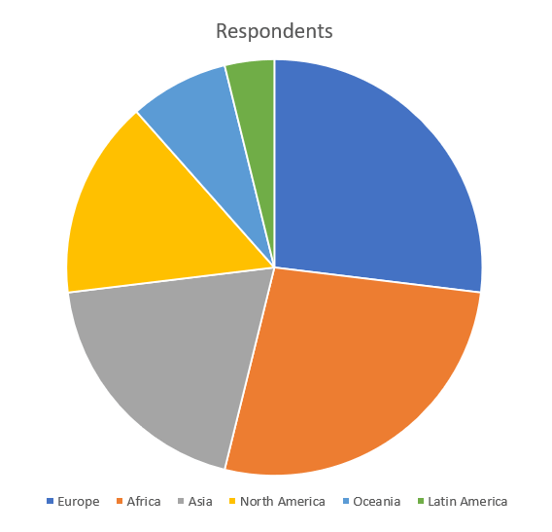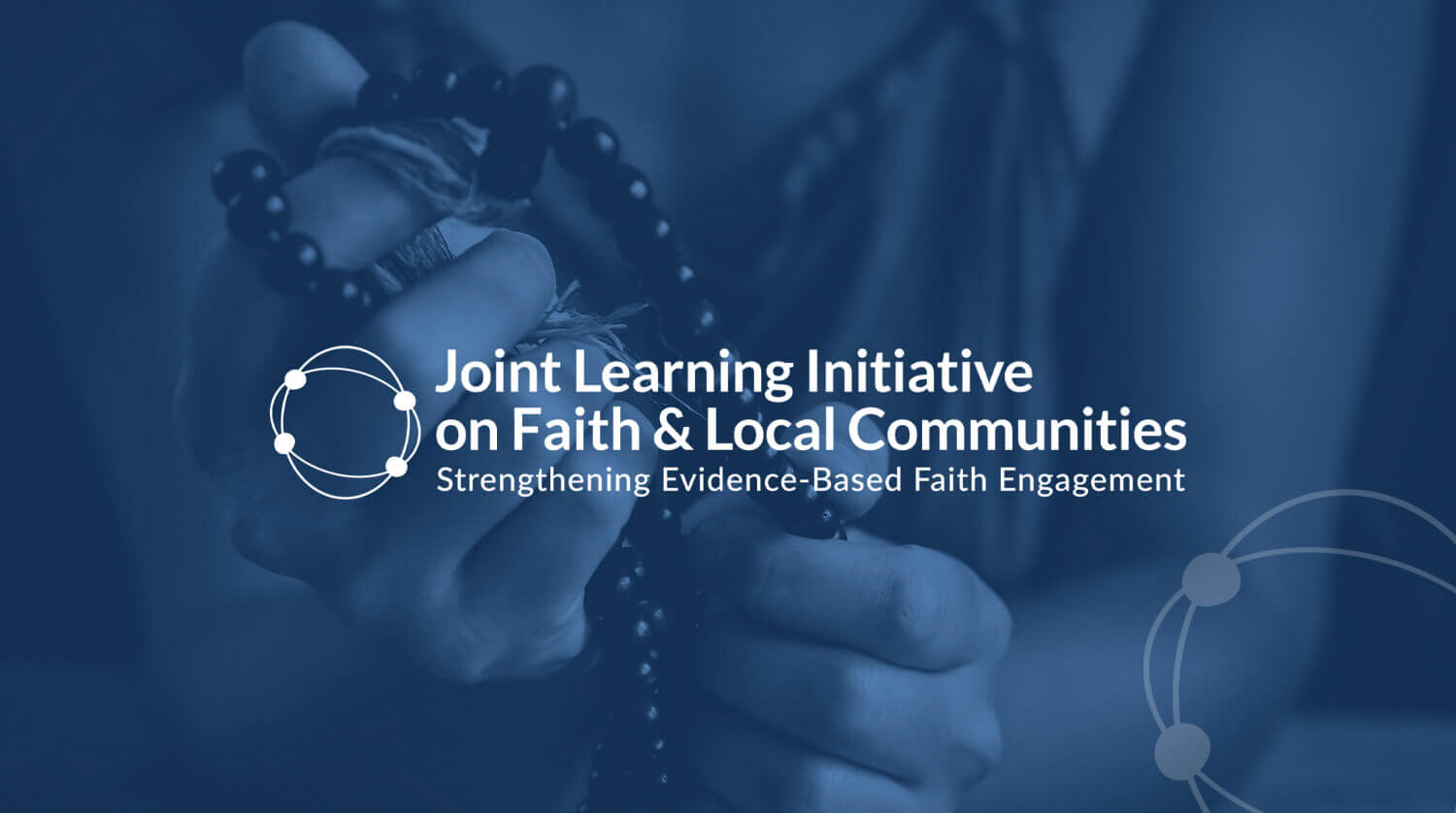At the end of 2022, JLI conducted our Annual Members’ Survey, inviting JLI members to provide feedback on their experiences with JLI in the past year, as well as suggestions for the year ahead.
This year, 26 members participated in the survey. While the majority of the respondents identified as Christian (with one Buddhist, three Muslims, and six who chose not to share their faith affiliation), the majority of respondents (58%) came from outside of Europe or North America.

The majority of respondents stated that in 2022, they had primarily engaged with JLI by attending webinars (73%) or reading newsletters (62%). Around 35% engaged by using the JLI resource library, while only 23% had engaged via Global or Regional Learning Hubs.
When asked how they had benefited from JLI this year, many spoke of the value of JLI’s resources. JLI’s resources had been used for research and teaching on religions and development; several respondents stated how they referenced JLI’s resources in their work; one had even shared JLI’s research with their congregation and local interfaith moments in their region. One respondent particularly mentioned the usefulness of the State of the Evidence report.
“The resource library makes the website the go-to place for anybody wanting to get the latest on the role of religion [and] development. This year we regularly checked in new publications and referred others in our network to the site.”
Respondents also spoke of how they had benefited from webinars and seminars, for example on issues such as COVID-19 or decolonisation. Other respondents benefited from “connecting to a broader community of scholarship and…expertise”, as well as “the global networking of learned experiences”.
However, respondents did note a number of barriers and challenges to participation with JLI. 46% stated that they were simply too busy to engage with JLI; however, 27% each pointed out that events and meetings did not suit their timezone, and that finances were also a barrier to participation; 23% also noted internet connection was a problem for them.
Looking forward to 2023
When asked what issues or themes JLI should prioritise in 2023, the most common responses that emerged were capacity building, localisation, social cohesion (including conflict and peacebuilding), developing and contextualising further research through the State of the Evidence, and climate change.
Respondents recommended developing regional hub presence across Africa – West Africa was particularly mentioned by numerous individuals. Europe (particularly the Balkans) and Asia (particularly the Middle East, Afghanistan, and South Asia) were also suggested as potential spaces for new Regional Hubs, with respondents suggesting that new Regional Hubs could focus on refugees and forced migration, social cohesion (including fascism and extremism) and climate change.
Respondents were asked what sort of training they would find beneficial to receive from JLI. The majority (65%) said they would benefit from training on how to implement strategic religious engagement (SRE), while 46% each said they would appreciate training on how to understand the evidence on religions and development, as well as how to access and use evidence for practice.
When asked how we could make JLI more useful for their organisation, the most popular responses were:
- More regional or national-level shared learning opportunities (50%)
- More webinars, events and articles to learn about religions and development (50%)
- More training opportunities (46%)
- More opportunities to share learnings with other members (46%)
- Accessible practice-focussed toolkits and guidelines on working in religions and development
Finally, we asked respondents what might improve their engagement with JLI. Many responded with similar suggestions: improved communication (including more regular reminders and notifications of upcoming activities); more intentional and consistent plans for engaging members (e.g. sharing timelines and benefits of engagement); having the opportunity to interact and participate more in research or networking events; an active hub in their region; and events that are better suited to their timezone. Several also mentioned, again, the need for more time and financial support in order to improve their engagement.
A more intentional roadmap of engagement (objectives, timeline, engagement points, communication) so that engagement is not on the current ad-hoc request. More consistent and regular communication would help to loop everyone back into the same page with shared goals.






